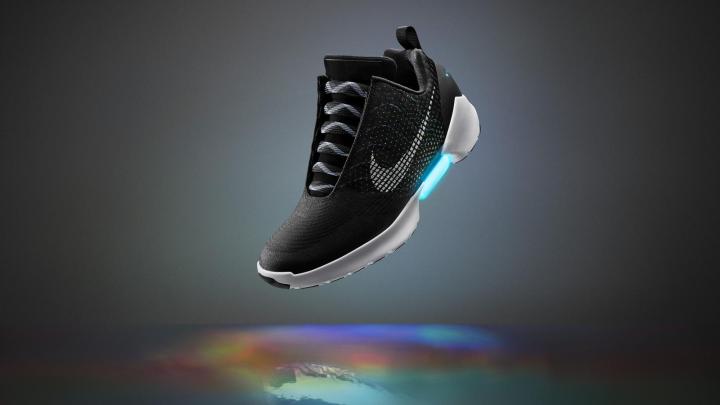
They’re launching at select stores on December 1, according to YouTuber and sneaker guru Jacques Slade, and will set you back a cool $720. Admittedly, that’s still enough to make your wallet recoil in fear, but if not tying your laces means that much to you, and plain ol’ slip-on shoes are just a wee bit boring, then it may be money well spent.
Just CONFIRMED with NIKE. Hyperadapt 1.0 is NOT $1000. It is $720 releasing on 12/1. pic.twitter.com/eqcwybbRyN
— Jacques Slade (@kustoo) November 14, 2016
The HyperAdapt shoes are an updated alternative to the self-lacing “Mag” shoes that first showed up on Marty McFly’s feet in part two of the Back to the Future trilogy.
The specially designed HyperAdapt sneakers incorporate automatic “adaptive fit” technology – also known as power-lacing – that enables the shoe to gently tighten around the foot when pressure sensors on the heel are activated.
Added gizmos include a couple of buttons on the outside of each shoe to help you fine-tune the fit by gently tightening and loosening the footwear while you’re wearing it, while a built-in battery should keep its tech powered for up to two weeks on a single charge.
Tinker Hatfield, who co-designed the shoe with Tiffany Beers, thinks adaptive lacing could benefit athletes as the technology offers a “tailored-to-the-moment” custom fit.
“It is amazing to consider a shoe that senses what the body needs in real-time,” Hatfield said back in March, adding that such a design “eliminates a multitude of distractions, including mental attrition, and thus truly benefits performance.”


